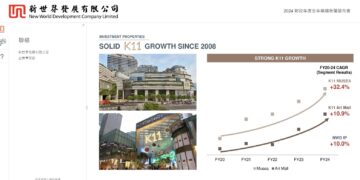But it also expressed concern there were not enough cabbies participating.
To improve the quality of taxi services, the Transport Department has granted conditional licences to five operators to form premium fleets.
SynCab is among two fleets that have piloted a trial run.
People who reserve a ride from a licensed fleet of premium taxis can opt to not pay by the meter and negotiate a fare with the driver instead.
Speaking on an RTHK programme on Wednesday, the company’s executive director, Sonia Cheng, said their fleet began operations in January and they had already noted a rise in drivers’ income.
“When we look at the numbers, average drivers used to be paid, for example, HK$146 when they charge by the meter. For orders in our fleet, the average fare can reach HK$268. This is 84 percent higher than the usual drivers. Over the past three months, we have provided 44,000 passenger trips,” she said.
Cheng said 30 percent of their customers made bookings on their ride hailing platform and this is one thing many drivers struggle to adjust to as they used to take instant orders from people flagging down a taxi on the street.
Asked about the timeline for starting a full operation, she said their fleet currently has about 100 taxis and needs at least 150 more to fulfil the government’s requirement.
On the same programme, Ho Chi-keung from the Motor Transport Workers General Union said from his understanding, drivers were not so enthusiastic about joining a licensed fleet.
“There are three main reasons: firstly, they got used to their current work mode. They may face problems with their roster after joining a fleet,” he said.
“Secondly, it’s about the holidays. Some drivers are now working three or four days a week, so it could be hard for them to adjust. It’s also about the deposit. They may need to pay a deposit once joining the fleet.”
“That’s why drivers are adopting a wait-and-see attitude.”
Ho said fleet operators should be more proactive in approaching the drivers and to explain to them the relevant terms, including whether a basic salary and holiday are provided and whether there’s an employment relationship.
The Transport Department has said that the five operators need to commence full services by July to receive the official licence.
But it also expressed concern there were not enough cabbies participating.
To improve the quality of taxi services, the Transport Department has granted conditional licences to five operators to form premium fleets.
SynCab is among two fleets that have piloted a trial run.
People who reserve a ride from a licensed fleet of premium taxis can opt to not pay by the meter and negotiate a fare with the driver instead.
Speaking on an RTHK programme on Wednesday, the company’s executive director, Sonia Cheng, said their fleet began operations in January and they had already noted a rise in drivers’ income.
“When we look at the numbers, average drivers used to be paid, for example, HK$146 when they charge by the meter. For orders in our fleet, the average fare can reach HK$268. This is 84 percent higher than the usual drivers. Over the past three months, we have provided 44,000 passenger trips,” she said.
Cheng said 30 percent of their customers made bookings on their ride hailing platform and this is one thing many drivers struggle to adjust to as they used to take instant orders from people flagging down a taxi on the street.
Asked about the timeline for starting a full operation, she said their fleet currently has about 100 taxis and needs at least 150 more to fulfil the government’s requirement.
On the same programme, Ho Chi-keung from the Motor Transport Workers General Union said from his understanding, drivers were not so enthusiastic about joining a licensed fleet.
“There are three main reasons: firstly, they got used to their current work mode. They may face problems with their roster after joining a fleet,” he said.
“Secondly, it’s about the holidays. Some drivers are now working three or four days a week, so it could be hard for them to adjust. It’s also about the deposit. They may need to pay a deposit once joining the fleet.”
“That’s why drivers are adopting a wait-and-see attitude.”
Ho said fleet operators should be more proactive in approaching the drivers and to explain to them the relevant terms, including whether a basic salary and holiday are provided and whether there’s an employment relationship.
The Transport Department has said that the five operators need to commence full services by July to receive the official licence.



































